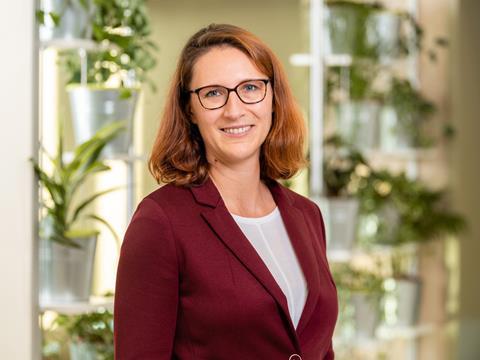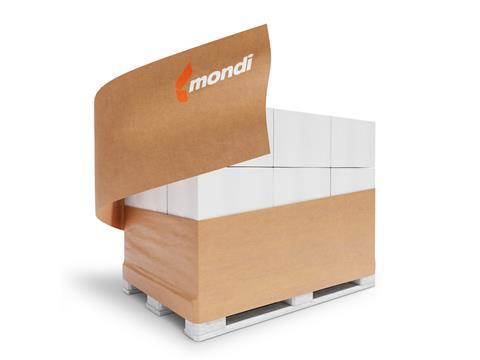
How does Mondi, one of the world’s largest packaging producers which employs 22,000 people across 100 production sites in more than 30 countries, translate sustainability theory into practice? We caught up with Elisabeth Schwaiger, Head of Research and Development and IP Flexible Packaging at Mondi, to find out.
To start with, I think it’d be useful to get a general overview of Mondi’s sustainability strategies and objectives. Could you break down the ‘Mondi Action Plan 2030’ goals and what they mean for Mondi Flexible Packaging?
MAP2030 formalises our proactive commitment to sustainability, setting out clear targets to create circular-driven solutions, to take action on climate change, and to empower our people. The targets are aligned with the Sustainable Development Goals (SDGs) set by the United Nations. For instance, through our target to make 100% of our packaging and paper portfolio reusable, recyclable or compostable by 2025, we aim to contribute to responsible consumption and production (SDG 12).
For Flexible Packaging, this means for example investing in and leveraging our R&D centre and lab network and utilising our expertise to constantly improve existing products and develop innovative and sustainable solutions.
And how do these goals manifest themselves in Mondi’s day-to-day activities? What is your R&D approach in working towards these goals?
One example of this is the work being carried out in our in-house recyclability testing laboratory in Frantschach where we test different materials and solutions first-hand and in real-time, so that we can offer our customers the best and most sustainable packaging solutions while maintaining their core functionality: protecting the product. This saves time in the development process and supports a fast and high-quality launch on a large scale, giving us and our partners a competitive advantage.
Can you pick out a single Mondi packaging innovation that you think best embodies these goals and strategies?
It is difficult to choose one product from our broad portfolio, but our functional barrier papers are a good example: they are recyclable in existing paper recycling streams throughout Europe and can replace plastics in many industries.
Thanks to our extensive research and development work, our expertise in both paper and plastics, and our continuous investment in new technologies, we were able to constantly evolve this portfolio. Different barrier properties mean that this range of paper-based packaging can be tailored to a range of applications, contributing to a circular economy.

Mondi has a holistic approach related to packaging material. Why did the company select this approach, and can you give us an example of it working in practice?
Our approach to packaging is to keep the needs of the customer and the packed product in focus at all stages of the design process. We consider, for example, which types of barrier properties are needed, shelf-life requirements, logistical challenges, the use of renewable resources and/or recycled content, as well as optimal disposal to keep materials in circulation and minimise waste.
We want to close the circularity loop wherever possible: by developing fit-for-purpose paper-based, flexible plastic mono-material or hybrid solutions that are sustainable by design. This addresses the key challenges we face as a society today, such as preventing food waste, using resources wisely and efficiently, and eliminating plastic pollution.
One example is Advantage StretchWrap - a fully recyclable kraft paper designed to stretch and resist punctures, replacing plastic stretch wrap for pallet wrapping and transport. According to a peer-reviewed life cycle assessment, it has a 62% lower CO2 e when compared to plastic made with virgin content to wrap one pallet.
And what are some of the key challenges in terms of implementing this approach? How does Mondi combat them?
The challenge is to provide packaging that considers a responsible and efficient use of resources and raw materials, a sustainable end of life and at the same time, fulfils the core function of packaging: Protection. We also need to think in a holistic system approach and not solely on a material level as well as taking the full value chain of paper and packaging into account.
To achieve this, we at Mondi for example closely collaborate with various stakeholders along the value chain. We are constantly working on innovative ideas using a network of expert knowledge, embracing university institutes and OEM partnerships, often thinking out of the box to find new approaches.













